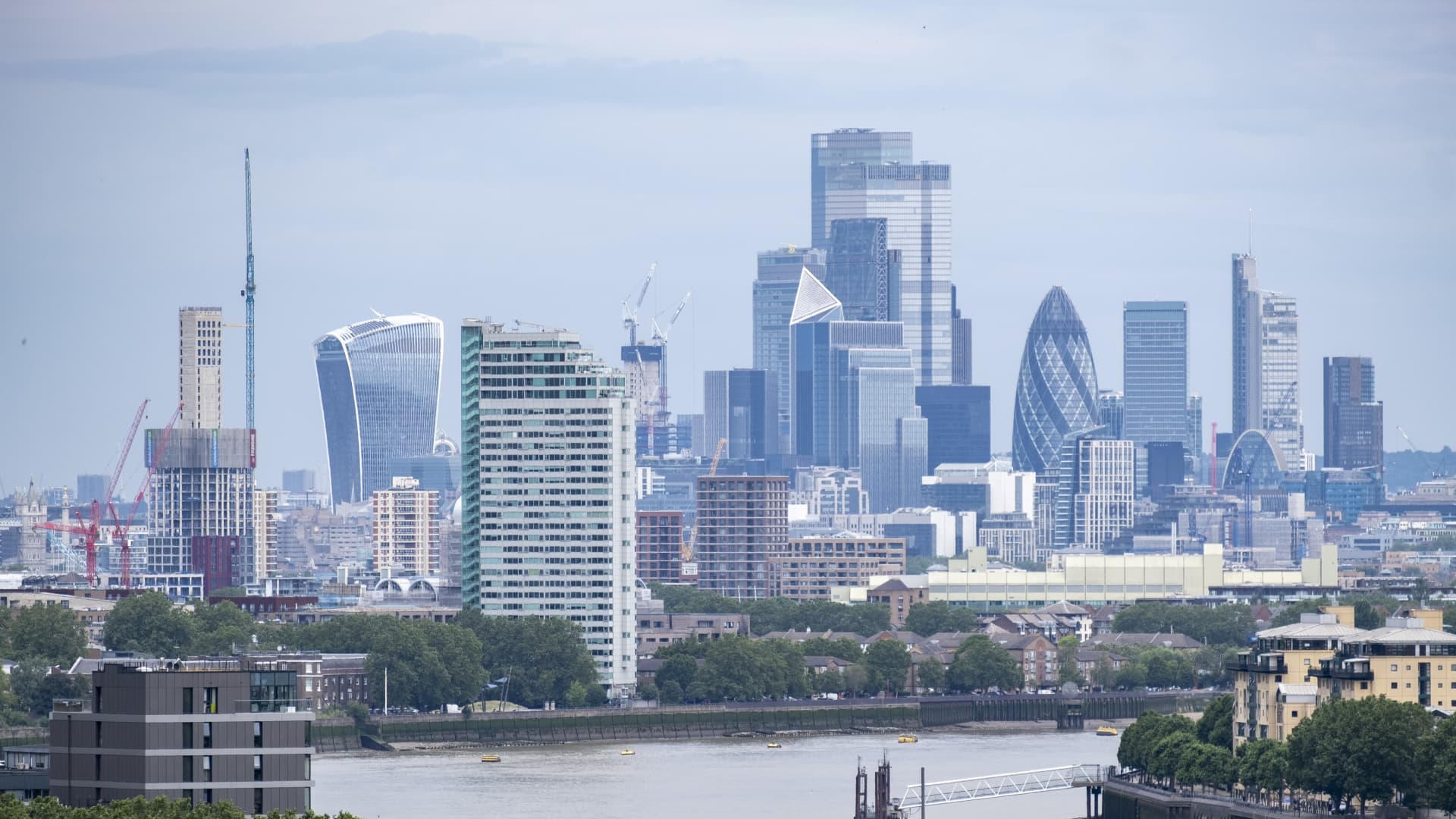Skyline view of the City of London financial district.
Mike Kemp | In Pictures | Getty Images
LONDON — The U.K. economy beat expectations with 0.2% growth in the second quarter, boosted by household consumption and manufacturing output, the Office for National Statistics said Friday.
Economists polled by Reuters had expected U.K. GDP to flatline in the second quarter, after eking out surprise growth of 0.1% in the first quarter, as the Bank of England’s tightening of monetary policy and persistent inflation began to constrain demand.
The economy expanded by 0.5% in June, beating a forecast of 0.2% growth. It follows monthly GDP growth of 0.1% in May and 0.2% in April. However, the strength of the June rise was partially attributed to warm weather, as well as the additional public holiday in May to celebrate the coronation of King Charles III.
Output was bolstered by 1.6% growth in manufacturing and 0.7% in production in the second quarter, while services grew by 0.1%.
The ONS noted strong growth in household and government consumption in terms of expenditure. Both faced price pressures in the quarter, though this moderated from the previous three-month period.
“The numbers are still pretty weak, they’re just not as weak as we were expecting,” Mike Coop, chief investment officer for EMEA at Morningstar, told CNBC’s “Squawk Box Europe.”
Coop said the figures continued the recent pattern of growth performing differently to forecasts. The Bank of England dropped its outlook for a U.K. recession in May. In its most recent monetary policy report, it said it expects quarterly GDP growth to remain around 0.2% in the near term.
Coop added that the effects of the U.K.’s monetary tightening policies would take time to feed through.
“The Bank of England are now forecasting that we will avoid recession, and if we stick to our plan to help people into work and boost business investment, the IMF have said over the longer-term we will grow faster than Germany, France and Italy,” U.K. Finance Minister Jeremy Hunt said in a Friday statement.
The BoE hiked rates by a quarter percentage point to 5.25% in August, and policymakers will be monitoring the latest GDP figures ahead of the bank’s September meeting. U.K. inflation remains among the highest of all developed economies at 7.9%, and the BoE does not currently expect it to reach its 2% target until 2025.
Ruth Gregory, deputy chief U.K. economist at Capital Economics, said in a Friday note that the consultancy still forecast a mild recession for the U.K. later in the year, as the impact of higher interest rates is felt.
“That may not prevent the Bank from raising interest rates from 5.25% now to 5.50% in September. But it may mean that rates don’t rise as far as the 5.75-6.00% envisaged by the consensus and investors,” she said.

